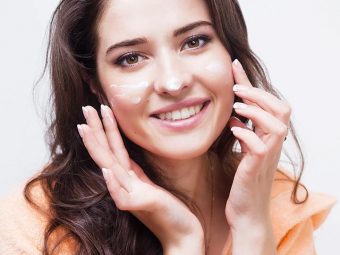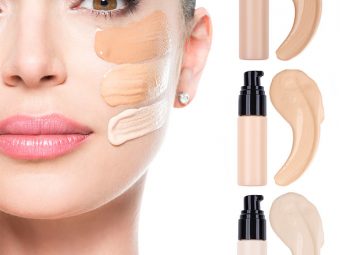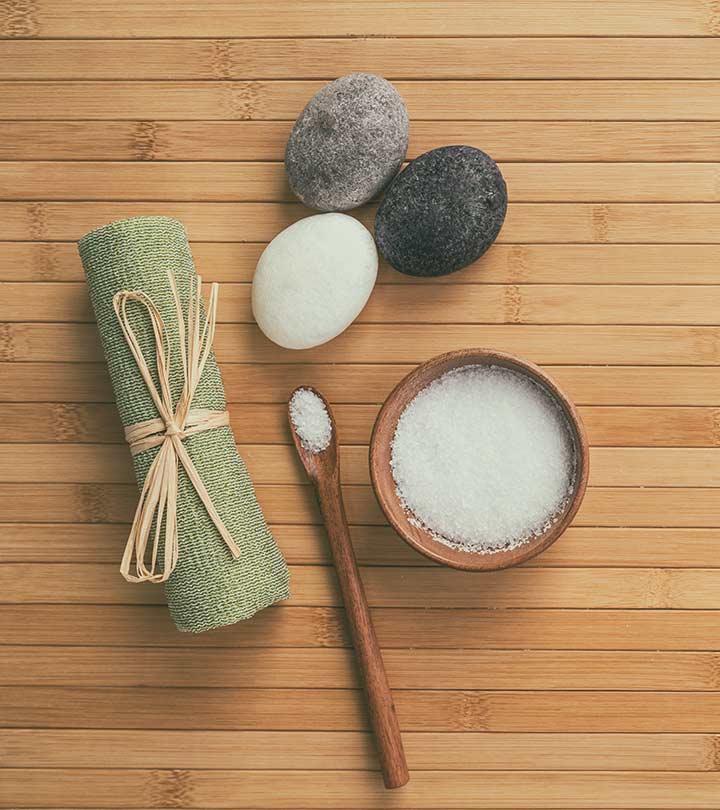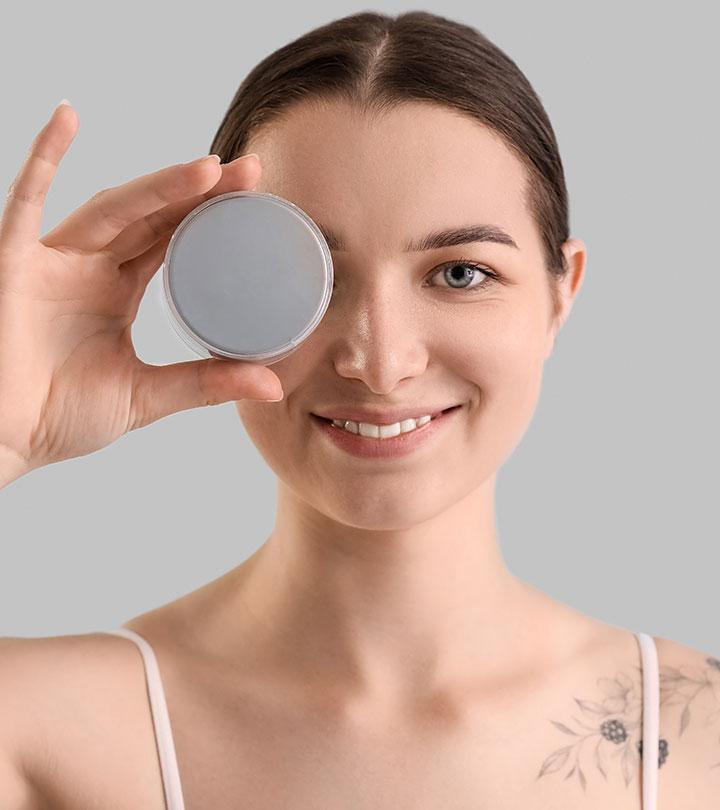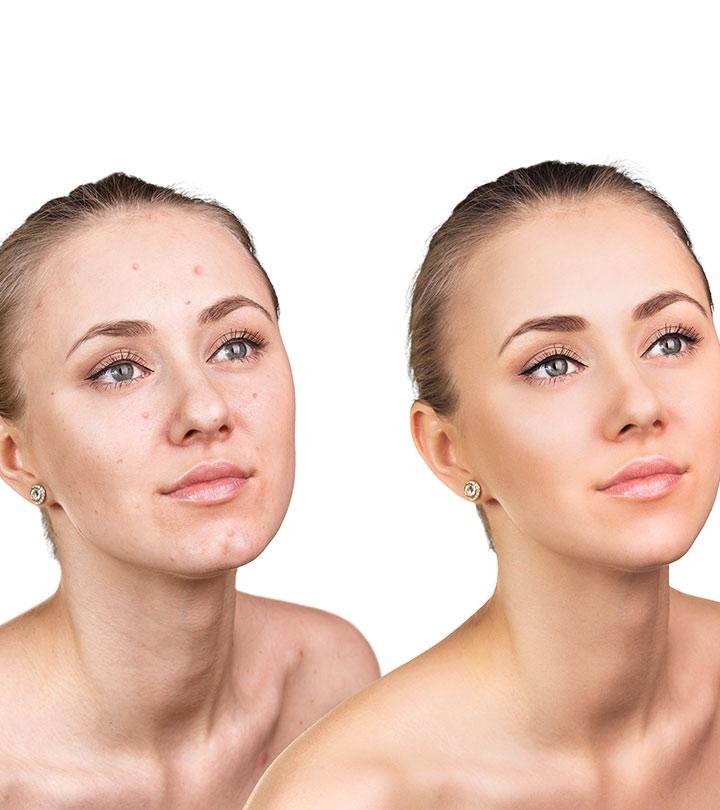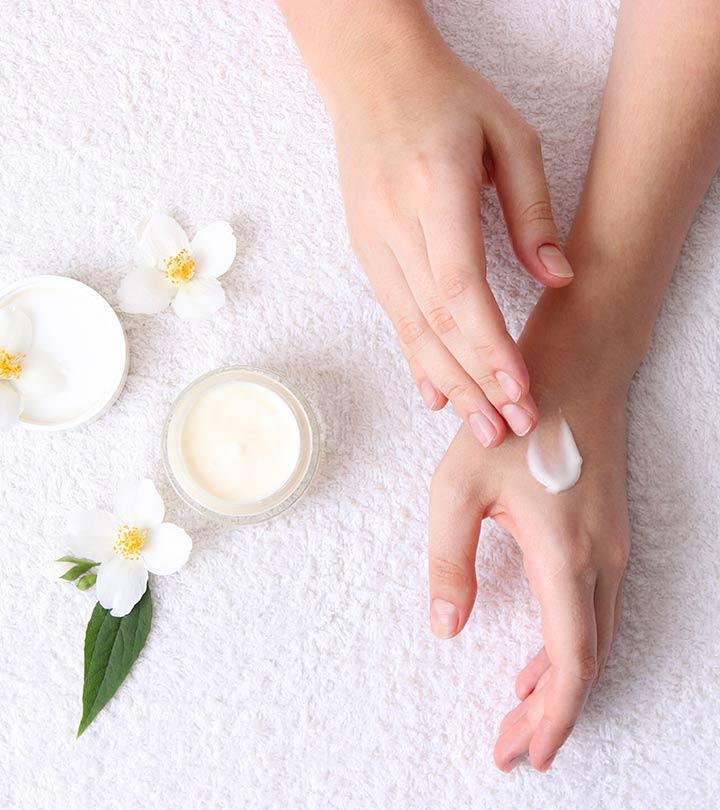What Is My Skin Type, And How Do I Take Care Of It?
Knowing your skin type is the first step to understanding what products work for you and what won't.

Image: Shutterstock
You have used up tons of skin care products, and nothing has worked out for you. Well, it is time to ask yourself one question — What is my skin type?
Yes, not all products work the same on all skin types. Therefore, you should have a customized skin care regimen based on your skin type for the results to be prominent. This article helps determine your skin type and how to manage it properly. Keep scrolling.
In This Article
Knowing Your Skin Type: Why It Is Important?
Different skin types react differently to cosmetic and skin care products. The way your skin reacts may change based on the weather conditions and seasons. Using inappropriate skin care products may cause reactions like rashes and breakouts. Most of the time, wrong skin care products fail to address your skin concerns and deliver any results.
 Did You Know?
Did You Know?That is why you need a thorough understanding of your skin and how it behaves. This will help you pick the right products suitable for your skin type and needs. Let’s take a look at the different skin types in the next section.
The Five Different Skin Types
1. Normal Skin
Normal skin does not overreact to any ingredient. It has a balanced oil and sebum production and is usually healthy.
2. Oily Skin
Oily skin usually has large skin pores and overactive oil glands that secrete excess sebum or natural oils. Compared to other skin types, oily skin is prone to frequent acne breakouts.
3. Dry Skin
If your skin feels tight, flakes a lot, and feels itchy, you have dry skin. Dry skin needs a lot of moisturizers to stay healthy and plump.
In a study published in the Journal of the European Academy of Dermatology and Venereology in January 2019, examining 48,630 employed individuals in Germany, findings revealed that 29.4% of the participants were diagnosed with dry skin (xerosis). The research highlighted that while gender wasn’t a significant factor, older age correlated with higher occurrences of dry skin.
4. Combination Skin
Combination skin is not a true skin type and has both dry and oily skin characteristics. Those with combination skin often have oily T-zone and dry cheeks. It also changes as per the season and tends to turn oily during summers and dry during winters.
5. Sensitive Skin
Sensitive skin is prone to irritation and inflammation. It often reacts to multiple ingredients, especially the harsh ones (like alcohol), and gets irritated when exposed to triggers like heat and friction. People with sensitive skin are prone to issues like cystic acne, contact dermatitis, and rosacea.
These are five basic skin types that may further change with age. If you are confused about your skin types, here are a few ways to determine that.
How To Tell Your Skin Type
1. The Bare-Faced Method
- Cleanse your face thoroughly with a mild cleanser and gently pat it dry.
- Do not apply any lotion or moisturizer.
- After 30 minutes, analyze the cheeks, jawline, nose, and forehead to check for shine.
- Wait for another 30 minutes. See how it feels when you smile or stretch your facial muscles.
- If your face feels tight and stretchy, minus any shine, you probably have dry skin.
- If you see a shiny T-zone, it means you probably have normal or combination skin.
- If both the T-zone and cheeks turn shiny, you have oily skin.
2. The Blotting Sheet Method
Compared to the bare-faced method, this is an easy and effective way to assess your skin type.
- Pat a blotting paper gently all over your face, especially on the chin, nose, forehead, and cheeks.
- Hold the sheet against the light to assess the amount of oil deposit on it.
- If the sheet has little or no oil, you probably have dry skin.
- If you see some amount of oil on it, especially around your forehead and nose, you must have normal or combination skin.
- If the blotting paper is saturated with oil, you have oily skin.
3. Take Professional Help
Consult a dermatologist to determine your skin type. Dermatologists thoroughly evaluate the skin and guide you accordingly. Moreover, they can help you set a proper skin care regimen by guiding you through ingredients and products suitable for your skin type and concern and ways to care for it. Here are a few more tips for maintaining healthy skin as per your skin type.
Jaimie, a blogger, guides readers on how to determine their skin type for effective skincare. She mentions how a person might fall under multiple categories under skin type. She writes, “I am considered Combination Oily skin type! I am oily the majority of the time, but depending on the climate I’m in and the time of the month it is, I can get dry patches, especially on my jawline and eye area (i).”
Skin Care Tips Based On Your Skin Type
1. Normal Skin
- Normal skin is not difficult to manage. It needs basic TLC and a basic skin care routine with the right products.
- Follow a daily CTM (cleansing-toning-moisturizing) routine.
- Always apply sunscreen when stepping out and use an anti-aging serum (if you have mature skin).
2. Oily Skin
- Cleanse your face twice a day and exfoliate once a week.
- Follow a basic CTM routine. Toning is crucial for oily skin as it helps minimize the appearance of pores and controls excess oil production.
- Always use a water-based (or gel-based) moisturizer and serum. Pick non-comedogenic products.
3. Dry Skin
- Choose products that do not contain alcohol and sulfates as they strip the skin’s natural oils.
- Avoid taking super hot showers. Instead, use lukewarm or room-temperature water to cleanse your face.
- If you live in a colder region, use a humidifier to maintain the skin’s moisture balance.
- Use products containing natural butters and plant oils to keep your skin hydrated.
4. Combination Skin
- Combination skin demands a combination of products to address both oily and dry areas on the face.
- Follow a basic CTM routine. Choose products depending on the state of your skin at that time.
- Use gentle and hydrating products that do not irritate the skin.
5. Sensitive Skin
- Use organic and plant-based products developed for sensitive skin. If you have conditions like rosacea or dermatitis, choose products that help address these concerns.
- Always do a patch test on your neck or your hand before trying out any product.
- Stick to products free of chemicals, alcohol, artificial fragrances and preservatives, and essential oils.
- Avoid experimenting with skin care products.
- Consult a dermatologist for product suggestions.
 Pro Tip
Pro TipKnowing your skin type is important as it allows you to pick products that cater to all your skin-care needs and deliver visible results. If your skin is tight and flaky, you have dry skin. On the other hand, if your skin is shiny and prone to acne, you have oily skin. To determine your skin type, you can try the good old blotting sheet method to see the amount of oil on it. If you are unsure about your skin type, go to a dermatologist for evaluation and further information. Hopefully, this article answers all your questions on what my skin type is and how to take care of it.
Frequently Asked Questions
What is the least common skin type?
The normal or balanced skin type is considered the least common skin type.
What is the most common skin type?
Combination skin type is considered to be the most common skin type.
Key Takeaways
- Oily skin has overactive oil glands that secrete excess sebum and are prone to frequent acne breakouts.
- A dermatologist can help set a proper skin care regimen by guiding you through ingredients and products suitable for your skin type.
- Combination skin demands a combination of products to address both oily and dry areas on the face.
Knowing your skin type is the first step in your skincare journey. The video below dives into the diverse skin types and helps you understand the unique skin tones so that you can tailor your skin care for optimum results. Click here to watch it!
Personal Experience: Source
StyleCraze's articles are interwoven with authentic personal narratives that provide depth and resonance to our content. Below are the sources of the personal accounts referenced in this article.
(i) HOW TO DETERMINE YOUR SKIN TYPEhttps://glitterwithgrace.blogspot.com/2014/06/how-to-determine-your-skin-type.html





